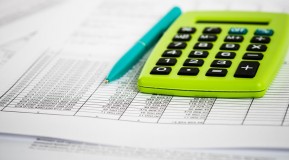
25th June 2021 Posted by - Alexander Accountancy
The dividend tax allowance was first introduced back in 2016 and replaced the old dividend tax credit with an annual £5,000 dividend allowance with tax payable on dividends received over this amount. The tax-free dividend allowance was reduced to £2,000 with effect from 6 April 2018 and has remained fixed at that level.
The tax rate for dividends received more than the dividend tax allowance are taxed at:
- 7.5% for basic rate tax payers
- 32.5% for higher rate tax payers, and
- 38.1% for additional rate tax payers.
Dividends that fall within your Personal Allowance do not count towards your dividend allowance and you may pay tax at more than one rate.
If you receive up to £10,000 in dividends you can ask HMRC to change your tax code and the tax due will be taken from your wages or pension or you can enter the dividends on your Self-Assessment tax return, if you already fill one in. You do not need to notify HMRC if the dividends you receive are within your dividend allowance for the tax year.
If you have received over £10,000 in dividends you will need to complete a Self-Assessment tax return. If you do not usually send a tax return, you need to register by 5 October following the tax year in which you had the relevant dividend income.
